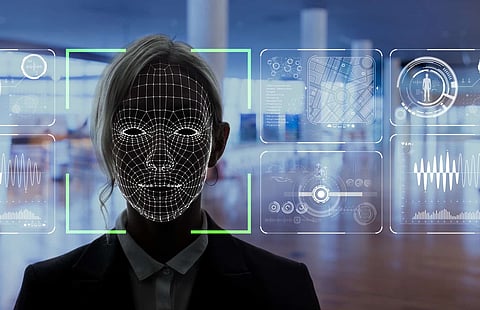

The use of facial recognition in various public sectors has received a great deal of press lately, and most of it isn't positive. There's a lot of concern over how state and federal government agencies are using this technology and how the resulting biometric data will be used.
As noted by Security Magazine, many fear that the use of this technology will lead to negative conditions. Unfortunately, these concerns are not without merit. Certain damaging results have been observed in regions where this technology is prevalent like – China, Singapore, and even the United Kingdom. London authorities recently fined a man for disorderly conduct for covering his face to avoid surveillance on the streets.
In the United States, San Francisco recently banned the use of facial recognition by law enforcement and other agencies due to its impression of "spying" on residents. At the same time, airports are adopting technology to replace boarding passes. The president recently signed an executive order requiring its use to identify 100 percent of international travelers including US citizens.
In addition to consumer concerns fostered by the notion of constant government surveillance, there are other factors that have led to the public outcry against the technology's use. Less accuracy and higher bias, particularly when applied to women and minorities, when certain facial recognition technology is outdated, is receiving a lot of criticism from customers. Moreover, distrust in the security of data privacy and the potential loss of both personally identifiable as well as biometric information due to a data breach is another point of concern.
Again, these concerns are valid. The issue of data privacy alone has already stopped the implementation of several face recognition systems. For example, the Lockport School District in New York state attempted to roll out a facial recognition system for all of its students. Parents, teachers and privacy advocates protested. Eventually, the New York State Education Department put the brakes on the project until a privacy assessment could be conducted to ensure that student data could be properly protected.
Besides all the burning concerns and threats sparked by the use of facial recognition technology, it caters to a wider aspect of security in the society.
Face recognition possesses the merits of high accuracy as a computer program that uses a person's face to automatically identify and verify the person from a digital image or a video frame from a video source. It compares selected facial features from the image and a face database or it can also be hardware which is used to authenticate a person. This technology is a widely used biometrics system for authentication, authorization, verification, and identification.
According to a report, the facial recognition system has been used by organizations like the Federal Bureau of Investigation (FBI), Central Intelligence Agency (CIA), Facebook and other big companies such as Apple, ASUS and so on. It is being used for various reasons but not limited to help users in identifying, verifying and searching the face of a person over a large database of faces. Basically, face recognition works by first reading the input image and pre-process the image, in which unwanted element in the face is removed. After that, the image is compared to the one in the database and the system displays the matching image.
Recently, London's police department announced that it would begin using facial recognition to spot criminal suspects with video cameras as they walk the streets, adopting a level of surveillance that is rare outside China.
The decision is a major development in the use of a technology that has set off a worldwide debate about the balance between security and privacy. Police departments contend that the software gives them a way to catch criminals who may otherwise avoid detection. Critics say the technology is an invasion of privacy, has spotty accuracy and is being introduced without adequate public discussion.
Britain has been at the forefront of the debate. In a country with a history of terrorist attacks, police surveillance has traditionally been more accepted than in other Western countries. Closed-circuit television cameras line the streets.
The technology London will deploy goes beyond many of the facial recognition systems used elsewhere, which match a photo against a database to identify a person. The new tools use software that can immediately identify people on a police watch list as soon as they are filmed on a video camera.
Whether it is used by public sectors or private, in the end it all sums up to the point where it all depends on how facial recognition is used and for what intent.
Join our WhatsApp Channel to get the latest news, exclusives and videos on WhatsApp
_____________
Disclaimer: Analytics Insight does not provide financial advice or guidance. Also note that the cryptocurrencies mentioned/listed on the website could potentially be scams, i.e. designed to induce you to invest financial resources that may be lost forever and not be recoverable once investments are made. You are responsible for conducting your own research (DYOR) before making any investments. Read more here.
